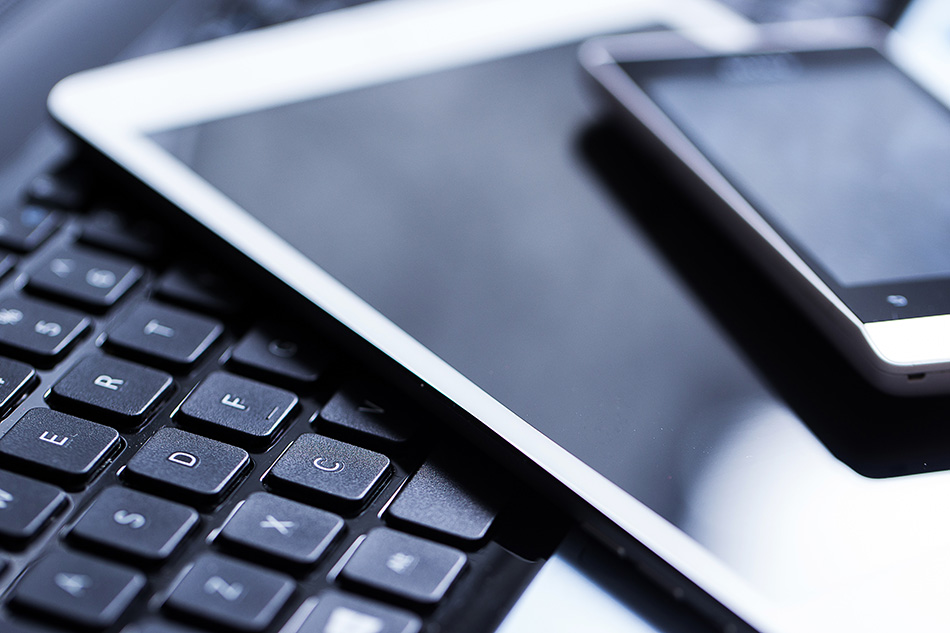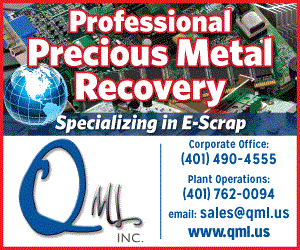
The leader of ATRenew says forward-looking businesses focused on used electronics management can help guide global environmental progress. | Y Photo Studio/Shutterstock
Looking beyond COP26, we aspire to give a second life to all idle electronic devices.
The 2021 U.N. Climate Change Conference, aka COP26, became the single largest global platform acting to mitigate further rises in temperature: It brought together 197 parties to commit to the Glasgow Climate Pact. This was a landmark event. But a wide group of folks needs to take action, including crucial participation from the private sector.
At the event, the International Data Sanitization Consortium (IDSC) and others took the opportunity to encourage Alok Sharma, the COP26 president and a member of the U.K. Parliament, to include e-waste in the climate summit’s agenda. The IDSC’s efforts, which were shared in an open letter, failed in their purpose, but this doesn’t mean the issue of unwanted consumer electronics can be ignored.

Kerry Chen
It is important because end-of-life electronics and IT equipment are the world’s fastest-growing category of post-use unwanted materials. According to the open letter, IDSC believes that “there is a clear relationship between data protection technology, e-waste reduction, and circular economy growth.” As per projections by the United Nations Global Council, unwanted consumer electronic goods failing to be recycled are expected to weigh in at a massive 74 million metric tons by 2030.
This reluctance by the U.N. to address the issue of end-of-life consumer electronics is one of many reasons why climate watchers and activists continue to believe that action has been slow. While those concerns could be deemed valid, we see that another development at COP26 provides proof of remedial progress. It has to do with the formation of the International Sustainability Standards Board (ISSB).
The ISSB will develop a comprehensive global baseline of high-quality sustainability disclosure standards, thus broad-basing the industry. We expect it to have greater success at driving concrete action, something that scientists and environmentalists look forward to.
While COP26 and ISSB show the way toward policy and standards, respectively, the industry can take direct action. Enterprises can and will pioneer the circular economy, given the right environment. We believe this to be true as we practice this at ATRenew.
Headquartered in Shanghai, ATRenew operates a leading tech-driven pre-owned consumer electronics transactions and services platform in China. ATRenew stands for “all things renew.” Since its inception in 2011, ATRenew has been on a mission to give a second life to all idle goods, minimizing environmental impact of pre-owned consumer electronics by facilitating recycling and trade-in services while re-commercializing the devices for a prolonged lifespan.
In July 2021, the National Development and Reform Commission released the Development Plan for the Circular Economy in the 14th Five Year Plan Period. The Plan aims to develop the circular economy through various initiatives such as promoting recycling, re-manufacturing, green product design and renewable resources.
We have used the sustainability mindset as our winning strategy. Our growth is proof that when we enable the industry to prioritize shared value creation, it makes sustainability-led businesses more viable. The resulting transformation acts as a force multiplier for positive change as it allows eco-conscious consumers to shop for a greener planet.
This is an opportunity for corporate leaders. We need to double down on it in a proactive manner. This will bring us to a new way of doing business.
The era of responsible business
While carrying our mission “to give a second life to all idle goods,” we are encouraged by the business environment we operate in. The Chinese government has a vision for a circular economy – its commitment to mitigating environmental impacts is underscored by its joint statement with the U.S. at COP26.
ATRenew stands for this new way of doing business with a sense of responsibility to the environment, society and governance. It has enabled us to grow organically – in the third quarter of 2021, our net revenues increased to 1,962.3 million yuan ($304.5 million) from 1,326.1 million yuan ($207.2 million) in the same period 2020, a boost of 48%. At the same time, total gross merchandise value, the total dollar value of goods distributed to merchants and consumers through transactions on platforms operated by ATRenew, increased by neary 57% to 8.3 billion yuan ($1.28 billion) from 5.3 billion yuan ($636.6 million) in the 3rd quarter of 2020.
In 2020 alone, we empowered over 100,000 small- and medium-sized merchants (mostly mobile phone retailers) to play their part in the goals being laid out by the Chinese government. During the reporting period, the company re-commercialized a total of over 23 million devices, contributing to the reduction of carbon emissions through its operations. In the third quarter of 2021, we reported an increase of 23.4% to 7.9 million consumer products transacted, up from 6.4 million in the third quarter of 2020. In spite of COVID restrictions, consumers continued to participate in the circular economy.
Ode to green consumption
ATRenew is committed to becoming the world’s largest standardized platform for pre-owned consumer electronics transactions and services. We have created technology-driven linkages that enable us to seamlessly connect the entire value chain for C2B, B2B and B2C fulfillment. By the end of 2021, we successfully linked up more than 1,300 offline recycling and service touchpoints nationwide through partnerships with e-commerce giants, including JD.com, as well as the supportive retailers and merchants across local markets in China. We are working to develop industry standards that helped transform a largely disorganized marketplace for end-of-life consumer products, notably mobile phones, into a unified ecosystem for recycling.
Meanwhile, we continue to work toward reducing the carbon footprint of our processes and making recycling for customers quick and easy. Through the offline store network, we offer data migration, data wiping, instant repair and trade-in service. Customers can place online orders through our partner JD.com, through the online storefront of mobile brands, or via our official website and mobile app. We provide pricing in real-time for consumers to aid their decision and the orders are fulfilled either through offline store interaction, door-to-door pickup or express mail – all these options remain safe during these COVID times.
As the IDSC wrote in their open letter to the president of COP26, “pursuing renewable sources of energy and lowering CO2 emissions is a global imperative.” One of the practical ways in which industry can play a part is to pioneer business models based on the circular economy. In China, these models are advanced and on display for the benefit of all the world, and are bringing direct benefits to consumers who want to find ways to monetize their end-of-life consumer goods.”
Kerry Chen is CEO of ATRenew.
The views and opinions expressed are those of the author and do not imply endorsement by Resource Recycling, Inc. If you have a subject you wish to cover in an op-ed, please send a short proposal to [email protected] for consideration.



